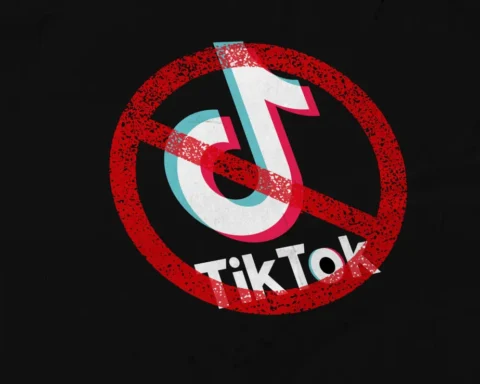[ad_1]
Indonesia’s defense minister, a feared former general who was removed from the army after he was found responsible for the kidnapping of political dissidents, appeared on track to winning the presidential election outright on Wednesday, casting doubts on the future of one of the world’s most vibrant democracies.
The candidate, Prabowo Subianto, had a commanding lead in the three-way race for president, with more than 58 percent of the vote, according to unofficial tallies that have a history of accurately predicting the final results. The two other presidential candidates said it was too early to declare a winner.
If the projections are confirmed, Indonesia — the world’s third-largest democracy — will be left contending with a president who has said that the country needs neither elections nor democracy, who was barred from entering the United States for two decades because of his human rights record, and who was long associated with Indonesia’s former dictator, Suharto. The era of liberty that followed the ouster of Suharto, critics say, could now be under threat with Mr. Prabowo’s ascent to power.
The election in Indonesia matters far beyond its borders. The world’s fourth-most-populous country, it is of growing strategic importance to both the United States and China. Indonesia is one of the world’s top producers of coal, palm oil and nickel, and it sits atop the supply chains of many international companies. All of that means it will have a major bearing on the future of the climate change crisis, as well.
Mr. Prabowo has coveted the presidency for decades and has tried on different public personas to court voters. But what finally pushed him over the line was the implicit support of the popular outgoing president, Joko Widodo, whose son Gibran Rakabuming Raka is Mr. Prabowo’s running mate.
By co-opting Mr. Prabowo, critics say, Mr. Joko showed the lengths to which he was willing to go to maintain his influence on Indonesian politics after his second five-year term in office ends. Democratic norms in Indonesia have eroded under Mr. Joko’s time in power. He has stripped down the powers of an anti-corruption agency, rammed through a contentious labor law and, more recently, appeared to engineer the placement of Mr. Gibran on the ballot for vice president.
“In the past Indonesia’s declining democracy has been closely related to the suppression of civil liberties, but with the deterioration in the quality of elections and intervention from those in power, I think we are now in a bad situation,” said Yoes C. Kenawas, a politics researcher at Atma Jaya Catholic University.
Such concerns have not filtered down to most Indonesians, who have largely prospered under Mr. Joko’s ambitious infrastructure and welfare projects. Surveys have consistently shown that they want someone to continue his legacy — and that is how Mr. Prabowo pitched himself in this election.
Indonesia is an important outlier in a region where the will of the people is often ignored. Even though democracy is widely considered to be imperfect here, many Indonesians have embraced it as a way of life. Elections in the last three decades have been considered free and fair, and voters say they do not want a return to the days of Suharto — Mr. Prabowo’s former boss and ex-father-in-law.
Polling stations across thousands of islands spread across three time zones were open for just six hours. Tens of millions of people voted, celebrating what is known in the country as “Pesta Demokrasi,” or Democracy Party. It can take weeks for the authorities to declare official ballot counts, given the expanse of Indonesia. But results can be apparent hours after the polls close, thanks to so-called quick counts, in which independent polling companies tally ballots from a sampling of polling places nationwide.
For the past few months, surveys showed Mr. Prabowo was ahead of his opponents,Anies Baswedan, the former governor of Jakarta, and Ganjar Pranowo, the former governor of Central Java. The platforms of the three candidates did not differ significantly, experts said, but Mr. Prabowo’s strongman bona fides set him apart.
Following Suharto’s 1998 ouster, Mr. Prabowo was discharged from the Indonesian military after the armed forces found he was involved in the abduction and torture of pro-democracy activists. More than a dozen remain missing and are feared dead.
Mr. Joko played a crucial role in the rehabilitation of Mr. Prabowo, whom he named defense minister in 2019. Then last fall, Mr. Gibran, 36, joined forces with Mr. Prabowo, 72, who aggressively courted the massive youth vote — people younger than 40 accounted for more than half of all eligible voters — with a slick social media campaign that sought to rebrand him as a gemoy, or cuddly, grandfather.
“I want Jokowi’s program to continue,” said Albertus Andy, 49, a motorcycle taxi driver in Jakarta, speaking after he voted for Mr. Prabowo. “And since he cannot do three terms, then for his son to continue.”
Mr. Joko’s maneuvering rattled some of his supporters. Many could not understand why a man who benefited from direct democracy now has dynastic desires. Mr. Joko had been expected to support Mr. Ganjar, one of the other presidential hopefuls and the candidate from Mr. Joko’s party.
“For our friends in the U.S., it’s as if Obama suddenly decided to support Trump while still endorsing a Democrat program,” said Andi Widjajanto, who resigned as a strategist for Mr. Joko in October and began working for Mr. Ganjar.
In October, Mr. Joko’s brother-in-law cast the deciding vote in the Constitutional Court’s decision to lower the age of vice-presidential candidates, allowing Mr. Gibran to join the race. An uproar followed, but Mr. Joko doubled down in recent weeks, saying that “a president is permitted to endorse candidates and take sides.” The message to many was unmistakable. By his side was Mr. Prabowo.
His statement fueled another outcry, prompting Mr. Joko to appear on YouTube holding up a poster and pointing to passages from the 2017 General Elections Law stating that presidents are allowed to participate in campaigning. “Don’t interpret it otherwise,” he said.
But legal experts said Mr. Joko was selectively quoting the law, which also states that he must take a leave of absence if he wants to campaign.
It is far from clear what Mr. Joko’s influence will be on Indonesian politics after he leaves office and if his son becomes vice president. Compared to the president, the vice president has limited power. But whoever holds the post is next in line if the president dies.
“I don’t expect Prabowo will allow Jokowi to carry too much influence,” said Natalie Sambhi, executive director at Verve Research, a group that studies the relationship between militaries and societies. “Now, the question becomes, if Prabowo starts to steer Indonesia in a different direction from Jokowi’s vision, what will happen?”
Mr. Jokowi “used to be the hope of the people; he is now no longer a leader, but a ruler, an official who is building dynastic politics,” said Maria Sumarsih, 71. Ms. Maria’s son was killed by security forces in November 1998 during a student protest at his university.
Todung Mulya Lubis, who campaigned for Mr. Joko a decade ago and served as Indonesia’s ambassador to Norway, said that “enjoying power with all the attachments to it” was probably something that had changed his former boss.
“He may have his power continue by proxy,” said Mr. Todung, who is advising Mr. Ganjar’s legal team. But he added: “Being a leader of this pluralistic country, he should understand that democracy limits his power.”
[ad_2]









